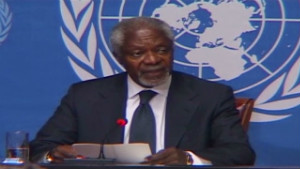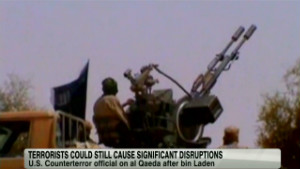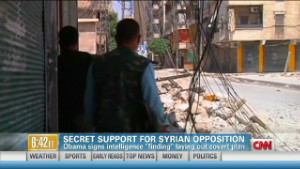 South Korea’s Lee angers Japan with plan to visit disputed islands
South Korea’s Lee angers Japan with plan to visit disputed islands
SEOUL (Reuters) - South Korean President Lee Myung-bak is scheduled to visit a set of remote islands on Friday, angering neighbor Japan which also lays claims to territory believed to contain frozen natural gas deposits that could be worth billions of dollars.
South Korea controls the islands with a coast guard presence and plans to beef up maritime research in an area also rich in marine life.
Lee is the first leader of South Korea to make the trip to the islands that have been a persistent irritant in relations between the two countries even after they moved on from Japan’s colonial occupation to develop flourishing commercial ties.
Japan swiftly issued a terse warning over islands, known as Takeshima in Japanese and Dokdo in Korean, which lie equidistant between the two mainlands.
“If it’s true, that would run counter to Japan’s stance on Takeshima and it would be extremely regrettable,” Chief Cabinet Secretary Osamu Fujimura said. “We are now already strongly asking South Korea to call off the visit.”
Officials in South Korea said the visit would highlight the islands’ importance as a natural reserve and was not aimed at stirring up trouble.
“There shouldn’t be anything unusual in a national leader visiting a place that is our territory,” an official said.
Lee will travel to a larger island called Ulleungdo off the Korean peninsula’s east coast, which is not disputed, and make the final leg, weather permitting.
Lee’s scheduled stop on the disputed islands was largely overlooked in South Korea, where he is in the final year of a mandatory single five-year term mired in corruption scandals involving former close aides and family members.
Syria‘s prime minister defected Monday, becoming the latest among high-profile politicians and leaders to leave the embattled regime of Bashar al-Assad.
“I announce today my defection from the killing and terrorist regime and I announce that I have joined the ranks of the freedom and dignity revolution. I announce that I am from today a soldier in this blessed revolution,” Riyad Hijab said in a written statement read by a Syrian opposition official on Al Jazeera.
Analysts described Hijab’s departure as a significant symbolic blow for al-Assad’s government but noted that the former prime minister had been on the job for only a few months.
Al-Assad appointed Hijab prime minister in June, a month after parliamentary elections that were boycotted by supporters of those seeking to oust al-Assad.
“In short, this isn’t going to bring a lot of insight into what Assad is thinking or doing. It is certainly embarrassing and does some damage to regime,” said David Hartwell, a senior analyst of Islamic Affairs at Jane’s. “But all indications are that Hijab was probably kept in the dark. This wasn’t a man who had Assad’s ear. Assad appointed him just a few months ago. He was essentially just another Cabinet member without much power at all.”
Hijab was tasked with creating a new Cabinet for al-Assad’s regime.
Opposition leaders said Hijab had defected, while Syrian state television said al-Assad dismissed Hijab from his post Monday.
Syrian Information Minister Omran al-Zoubi said officials hadn’t “heard anything from the former prime minister,” according to the state-run Syrian Arab News Agency
The information minister also “said that fleeing and leaving one’s post in an illegitimate manner is an evasion of responsibility and shows lack of political and national awareness,” the news agency reported.
In July, one of Syria‘s most senior diplomats — Nawaf al-Fares — defected, publicly embraced his country’s uprising and called for a foreign military intervention. Al-Fares was Syria‘s ambassador to Iraq.
Manaf Tlas, a Sunni general in Syria‘s elite Republican Guards, also defected last month. Tlas is the son of a former defense minister and a cousin of a first lieutenant in al-Assad’s army.
Also Monday, the Turkish news agency Anadolu reported that Syria‘s first man in space — astronaut Mohammad Ahmad Faris, who flew on a 1987 Soviet space mission — crossed into Turkey last weekend and proclaimed his support for opposition forces.

 A license to fund Syria
A license to fund Syria
Hijab, like al-Fares and Tlas, is a Sunni who served in a power structure dominated by the Alawite minority, an offshoot of Shiism.

 Is U.N. fiddling while Syria burns?
Is U.N. fiddling while Syria burns?
“If strategically Hajib’s defection means very little, it does have symbolic significance,” said David Schenker, the director of the Program on Arab Politics at The Washington Institute. “The more Sunnis who split off at this high level, the more it will encourage other Sunnis in their attitudes toward the regime.”

 How to stop al Qaeda in Syria
How to stop al Qaeda in Syria
Opposition leaders hailed the news of Hijab’s defection.

 Secret support for Syrian opposition
Secret support for Syrian opposition
Syrian forces deploy heavy weapons in Aleppo
“We consider the defection to be what is morally right and what is called for at this historic time,” said Abdulbaset Sieda, head of the Syrian National Council. “This is a killer and criminal regime, and at this historic moment, there should be no further hesitation. It is imperative to stand by the people of Syria now.”
There were conflicting reports about the whereabouts of Hijab.
A Syrian opposition official, Muhammad el-Etri, told CNN that Hijab had defected, was “in a country neighboring Syria” and would be heading to Qatar “sometime soon.”
George Sabra, a spokesman for the opposition Syrian National Council, said Hijab fled Syria overnight and arrived with his family in Jordan.
Jordanian government spokesman Samih Maaytah said Hijab had not entered the country’s territories, according to state television. But a senior Jordanian official told CNN that Hijab had defected to Jordan and was with his family.
Government officials announced Hijab’s sacking after officials discovered he had left Syria, el-Etri said. The former prime minister escaped Syria with the help of the rebel Free Syrian Army, el-Etri said, adding that the plan to defect had been in the works for two months.
“The flight of some personalities, however high-ranking, won’t affect the Syrian state,” state-run SANA said Monday, citing the country’s information minister.
Meanwhile, fighting raged in Aleppo, Syria‘s most populous city.
Snipers fired from the roofs of buildings and artillery fire rang out in the besieged neighborhood of Salaheddin.
CNN’s Ben Wedeman said drivers had to dodge piles of rubble in the streets. Residents evacuating to safer neighborhoods left their homes with all the belongings they could carry, he said.
An elderly man, carrying a briefcase and a bag full of jam, said he was leaving the neighborhood to move in with his daughter.
“What kind of leader does this to his own people?” the man said as he left his home.
A dark plume of smoke rose in the air near Aleppo’s ancient citadel.
At least one rebel-controlled neighborhood was notably calmer, Wedeman said. Shops and bakeries were open, and residents walked the streets.
Clashes raged for hours at various spots near the city center, some close to the presidential palace, said Bashir Al-Hajji, a spokesman for a Free Syrian Army brigade in Aleppo.
As rebels scrambled to fend off regime forces in Aleppo, fighting was reported in other parts of Syria.
At least 161 people were killed in fighting across the country Monday, the opposition Local Coordination Committees of Syria said. The deaths included 54 people killed in fighting and the discovery of 20 bodies in Aleppo, the group said.
At Syrian rebels’ funeral, children weep
CNN can not independently confirm reports of violence, as the government has severely restricted access to Syria by international journalists.
There were reports of a bombing Monday inside the Syrian state-run TV building in Damascus, the latest in a series of attacks to rock the nation’s capital city as Syrian rebels and government forces battle for control of the country. There was no immediate claim of responsibility for the blast.
“There are some injuries, but Syrian media will continue to broadcast,” the Ministry of Information said on state-run TV.
Three Iranian prisoners were killed in the Damascus suburbs during heavy shelling Monday, according to the LCC. The opposition network did not provide additional details.
State media reported over the weekend that “armed terrorists” had attacked and kidnapped 48 Iranian Shiite pilgrims on a bus near the capital.
Roughly 17,000 people have been killed since the Syrian conflict first flared in March 2011, when government forces began cracking down on protesters, Ban said last month. The opposition put the toll at more than 20,000.
Complete coverage: Unrest in Syria
Israel: Obama’s Wedge Issue
Less than 100 days before the US presidential elections, the Obama administration is openly denying Israel‘s sovereignty over Jerusalem. Can this be a vote-getter?
Last week, the Emergency Committee for Israel released an ad titled, “O, Jerusalem.” The commercial showed administration officials squirming when asked to name the capital of Israel, and highlighted the recent refusals of White House and State Department spokespeople to acknowledge that Jerusalem is Israel‘s capital city. The underlying message of the ad was that the administration’s policy is out of step with the views of the majority of Americans.
Barack Obama’s position is certainly a political outlier. The 1995 Jerusalem Embassy Act, passed nearly unanimously by both houses of Congress, explicitly stated that it is the policy of the United States that Jerusalem should be recognized as the capital of Israel. The law granted the president a right to postpone the transfer of the US Embassy from Tel Aviv to Jerusalem on national security grounds. But the law’s recognition of Jerusalem as Israel‘s capital was unconditional.
During his visit to Israel earlier this week, presumptive Republican presidential nominee Mitt Romney highlighted the fact that he holds the consensus view of the American public on Jerusalem.
In his speech in Jerusalem on Sunday afternoon, Romney said simply, “It is a deeply moving experience to be in Jerusalem, the capital of Israel.”
The Palestinians were predictably enraged.
Also predictably, the Palestinians chastised Romney for another statement he made that was equally rooted in America’s bipartisan consensus.
Romney noted that other things being equal, cultures that uphold and protect political and economic freedoms are more prosperous than cultures that don’t.
In a breakfast meeting with American supporters in Jerusalem on Monday, Romney noted that Israel‘s per capita income is significantly higher than the per capital income of Palestinians in areas governed by the Palestinian Authority, just as per capita income in the US is higher than per capita income in Mexico, and per capita income in Chile is higher than per capita income in Ecuador.
It is hard to think of a milder criticism of Palestinian society than Romney’s comparison of the Palestinian economy to the economies of Mexico and Ecuador. Romney could easily have gone much further without ever leaving the confines of received wisdom. For instance, he could have mentioned - as Obama did in his speech in Cairo in June 2009 - that Muslim societies under-invest in education relative to non-Muslim societies.
Or he could have highlighted - as Secretary of State Hillary Clinton often did during her tenure in the US Senate - that official Palestinian institutions indoctrinate Palestinian children in a culture of death, teach them to hate Jews and aspire to become suicide bombers in a jihad aimed at Israel‘s physical eradication.
It was predictable that the Palestinians would condemn Romney for his run of the mill support for Israel and his milquetoast criticism of the Palestinians, because they reject every criticism of their behavior and take umbrage at every step anyone takes that suggests acceptance of the Jewish state or recognition of Jewish history.
This behavior is common to all groups in Palestinian society, from Hamas to Fatah to the so-called liberal reformers. In line with this, while Hamas condemned visits to Auschwitz as helping “Israel to spread the lie of the Holocaust… and garner international sympathy… at the expense of the Palestinians,” the supposedly moderate, liberal Palestinian for Dignity organization condemned the EU for upgrading its trade ties with Israel.
The EU is the largest financial backer of the PA. Its policies towards Israel are in complete alignment with what the purportedly moderate Palestinians claim they want in a peace deal with Israel, including the partition of Jerusalem, and the expulsion of 600,000 Jews from Judea and Samaria and the neighborhoods built outside of the 1949 armistice lines in Jerusalem. And yet, as Shoshana Bryen from the Jewish Policy Center reported, for simply upgrading EU trade ties with Israel, Palestinian for Dignity announced its members “will organize to protest the latest manifestation of EU complicity and to challenge its presence and operations in Palestine.”
Given the routine nature of Palestinian hysteria at Romney, and the bipartisan consensus upon which Romney’s remarks were based, there was no reason either his remarks or the Palestinians’ response to his remarks would spark any controversy in the US. Indeed, given the fact that both US law and the majority of Americans respect Israel‘s determination that Jerusalem is its capital city, it could have been taken for granted that Obama would keep his head down and hope to avoid further discussion of the issue.
Certainly, given that he had made statements similar to - indeed stronger than - Romney’s statements about cultural causes for economic prosperity, it could have been assumed that Obama and his surrogates would have disregarded PA spokesman Saeb Erekat’s ridiculous characterization of Romney’s statement as “racist.”
Given that it is election season, and then-candidate Obama’s stated support for Jerusalem as Israel‘s capital in 2008, the Obama administration could reasonably have made its own endorsement of Jerusalem as Israel‘s capital city.
But amazingly, the Obama administration has taken the opposite tack. Obama and his media surrogates seized on the Palestinians’ criticism of Romney as proof that by embracing the American consensus on Israel, Romney had committed an unforgivable diplomatic faux pas.
First there was the White House‘s statement Monday on Jerusalem. Rather than keeping quiet, Obama doubled down. In a press briefing, White House deputy spokesman Josh Earnest not only refused to acknowledge that Jerusalem is the capital of Israel. He drew attention to the difference between Romney’s position and the administration’s and denied that Israel has a capital.
In Earnest’s words, “Our view is that [Romney's position that Jerusalem is Israel's capital] is a different position than this administration holds. It’s the view of this administration that the capital should be determined in final-status negotiations between parties.”
At the same time, Obama’s media surrogates have focused their wrath on Romney’s statement about the cultural sources of economic prosperity.
Foreign Policy’s David Rothkopf condemned Romney’s statement as racist.
The New York Times’ Thomas Friedman accused Romney of “not knowing what he was talking about.”
Both Rothkopf and Friedman - and a chorus of their colleagues on the even more hysterical Left - laced their broadsides against Romney with frontal assaults against top Republican donor Sheldon Adelson and other Jewish American supporters of Romney. These denunciations were - at a minimum - infused with anti-Semitic innuendo.
Rothkopf wrote that in embracing Israel, “at a fund-raiser to pander to big donors - including Sheldon Adelson,” Romney displayed “a willingness to sacrifice US interests in exchange for political cash.”
Friedman’s entire column was a screed against pro-Israel American Jews who contribute to the campaigns of candidates that support Israel. He argued that in pursuit of these American Jewish dollars, Republican politicians have abandoned America’s national interest. In other words, Friedman alleged that American Jewish money is causing Republicans to betray their country.
Friedman wrote, “the main Israel lobby, AIPAC, has made itself the feared arbiter of which lawmakers are ‘pro’ and which are ‘anti-Israel,’ and therefore who should get donations and who should not.”
On their face, Obama’s repeated assaults on Israeli sovereignty over Jerusalem, and his surrogates’ attacks on pro-Israel politicians, make no sense. For the past two years, Democratic leaders have insisted that support for Israel is bipartisan.
Last year, Democratic National Committee chairwoman Rep. Debbie Wasserman Schultz demanded that her Republican colleagues avoid making Israel a “wedge issue,” that would distinguish Democrats from Republicans.
But again, Romney’s statements in Jerusalem did nothing of the sort. They were the embodiment of the bipartisan consensus. It is Obama who is distinguishing between the parties’ positions on Israel.
Obama is making his hostility to Israel a wedge issue.
As Republicans repeat traditional positions, the Democrats are rendering conventional statements of amity with the Jewish state controversial. It is the Obama White House and its surrogates who are attacking those who recognize Israel‘s capital as diplomatic flamethrowers. It is the Democrats who are demonizing American supporters of Israel as disloyal.
Obama’s assault on Romney is an extension and amplification of his Jewish proxy J Street’s campaign against Congressmen Allen West of Florida and Joe Walsh of Illinois. Last month, J Street released ads attacking West and Walsh for being even more pro-Israel than most of their pro-Israel congressional colleagues. After Romney returned from Israel, J Street released a new ad attacking Romney for being nearly as pro-Israel as West and Walsh.
What has changed? Why are Obama and his surrogates now highlighting Obama’s hostility? Why are they making opposition to Israel a partisan issue and attacking Republicans for being pro-Israel?
Much of the answer was provided by by J Street president Jeremy Ben-Ami last week. In an interview with The New York Times, Ben-Ami explained, “Every single number indicates that there is simply no such thing as a Jewish problem for the president. The people who only vote on Israel didn’t vote for Obama last time and know who they are voting for already.”
In other words, Obama has given up on the pro- Israel vote. He’s going for the anti-Israel vote and the indifferent-to-Israel vote. True, Obama outrageously markets his anti-Israel platform as pro- Israel. For instance, J Street attack ads on pro-Israel Congressmen West and Walsh present them preposterously as “anti-Israel.”
So, too, Friedman and Rothkopf write that by supporting Israel, Romney is harming Israel, because it is Israel‘s vital interest to be diplomatically coerced into surrendering to its Palestinian enemies.
Although this seems merely ridiculous, it is actually insidious. These arguments are implicit messages to three groups. For out-and-out anti-Semites, they reinforce the paranoid belief that Jews and Israel are so powerful that even the president is afraid to openly say what he thinks about us.
For socially conscious Israel-haters, the messaging enables them to continue bashing Israel without fear that they will be accused of being anti-Semites.
And for American Jews who are indifferent to Israel, the messages give them cover to vote for Obama without having to admit that they couldn’t care less about Israel.
Obama’s reelection campaign strategy has mystified many observers. Why, they wonder, is he playing to his base instead of moving to the Center? Like his attacks on free enterprise and Catholics, his attacks on Israel seem to indicate that he doesn’t care about getting reelected.
But this is not the case. Evidently, Obama’s campaign strategy is to conduct multiple micro-campaigns rather than one national campaign. Apparently his data indicate that he will win or lose the election depending on how a few key districts in swing states vote. Based on these data, his campaign strategists have plainly concluded that some of these decisive districts are populated by anti- Semites, Israel-haters and indifferent Jews for whom his absurdly marketed anti-Israel positions resonate.
Aside from that, these positions clearly resonate with him. Consequently, they will certainly form the basis for his policy towards Israel if he wins a second term in office.
Clinton and Palestinian Culture: Not So Fast
Over at the Atlantic, Garance Franke-Ruta contrasts Mitt Romney’s opinion of Palestinian “culture” (or, rather, how the media interpreted his comments) with that of Bill Clinton. With a hat-tip to National Journal’s Matthew Cooper, who dug up the quote, Franke-Ruta publishes a comment Clinton made in a speech last year in Riyadh that would seem to put him at stark odds with Romney on their evaluations of Palestinian culture.
When I read the quote, I immediately recognized it: I once heard Clinton deliver the same line–only it was to a Jewish audience, and it was meant to make the opposite point he was making to the Saudis, a point that comports much more with what Romney said. (Classic Clinton there, by the way.) First, what Franke-Ruta quotes, via the Arab News:
He said Palestinian President Mahmoud Abbas and Prime Minister Salam Fayyad have done a remarkable job in the West Bank. “It is just an example of what would happen for the Palestinian people if they are given a chance to govern,” Clinton said. “Palestinians are a hard-working and an incredible community. They have done remarkably well outside their country. I have never met a poor Palestinian in the United States; every Palestinian I know is a college professor or a doctor.”
The problem in Israel, he said, is what happens in multiparty democracies around the world. “If you take a poll today, two-thirds of Israelis will support peace and a peace agreement,” Clinton said. “However, it is hard to get an Israeli Parliament that reflects the people’s views on this one issue. But we all have to keep pushing.”
This was a clever rhetorical trick here. Clinton doesn’t say the problem is in Israel, he just switches immediately to the problem in Israel, leaving the impression this is Israel’s fault without explicitly saying so. (Also, his comment about Israelis being unable to elect a Knesset that shares the popular view on the peace process is nonsense; the Israelis have such a government now.)
That line about rich Palestinians in America made it easy to find my own account of Clinton’s speech to the American Jewish World Service in 2007. There, he made the same remark about all the Palestinian professors he knows, but then Clinton expressed his frustration that the Palestinians in Gaza possess some of the most beautiful beaches he’s ever seen, beaches that could be tourism cash cows, if only they could get their act together. He also noted that the Palestinians chose to destroy much of the infrastructure Israel left behind after the 2005 disengagement, rather than use it and build on it as free capital.
Their obsession with violence and warfare, he noted–not just against Israel but against each other as well–was destroying their development. Then he said this: “Those of us who are in a position to know better, and have the circumstantial freedom to do better, have a very real obligation to act on what we know.”
Now that is quite the condescending statement. Those of us who know better than the Palestinians–who have the resources and intelligence but, according to Clinton, not the cultural drive to prioritize economic development over retaliatory conflict–have a responsibility to take our values global to help others.
Clinton’s speech at that AJWS event, by the way, was flawless and universally well-received. Not a single objection during or after, as far as I can remember, was raised about the condescending manner in which Clinton spoke about Palestinian culture or the fact that he clearly laid the blame at the Palestinians’ own feet. Perhaps that’s because he was out of office. Or perhaps it’s because hypocrisy is the lifeblood of manufactured outrage, and the media’s response to Romney’s remarks contain a whole lot of both.
UPDATE: Turns out my old article on the event for a now-defunct Jewish newspaper was somehow still online. I’ve added the link to the story.
Topics: Bill Clinton, Palestinians, Romney
0 Comments
You can be the first one to leave a comment.